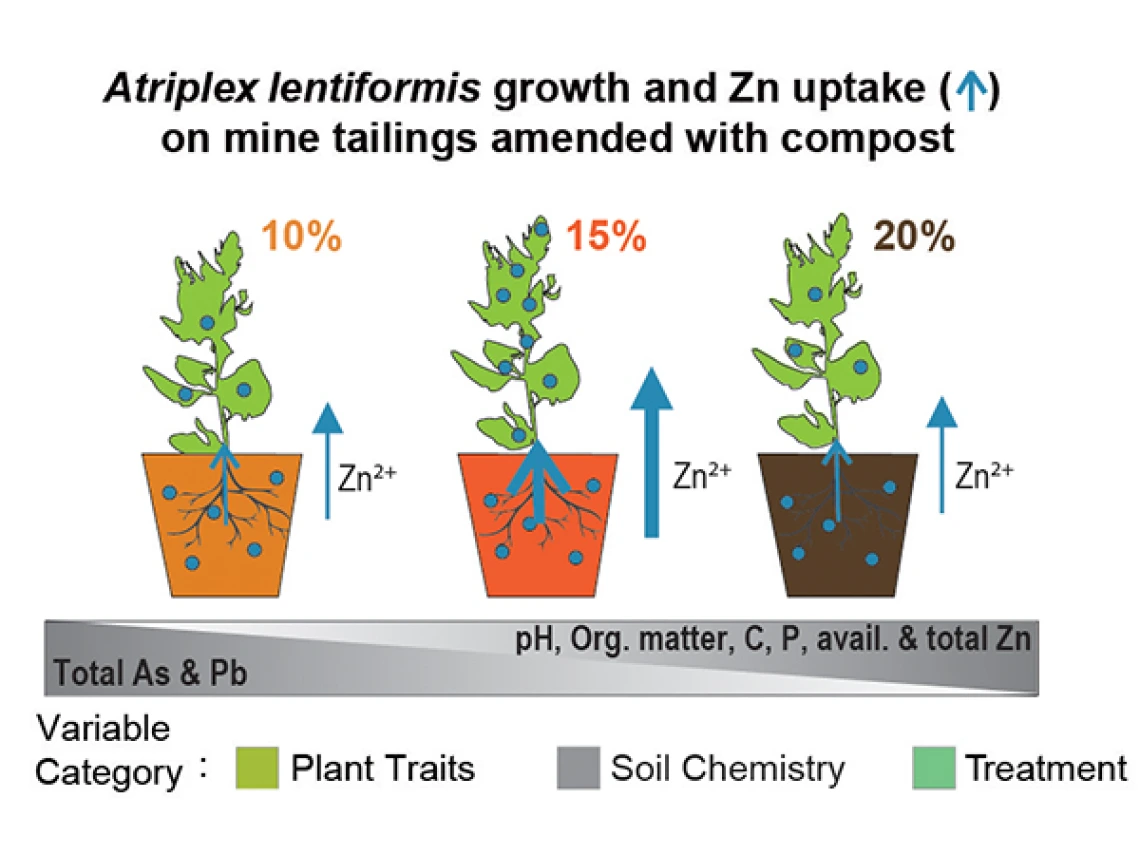Identifying Relationships to Optimize Quailbush Plant Growth in Metal-contaminated Mine Tailings

University of Arizona Superfund Research Center (UA SRC) researchers in Project 5 recently published “Interactions between the soil microbiome and quailbush gene regulation in compost-amended metalliferous tailings,” which seeks to identify relationships between tailings properties, the soil microbiome, and plant stress response genes so that plant growth can be optimized under harsh conditions.
Acidic metal-contaminated mine tailings in arid environments do not support plant growth. Therefore, successful remediation requires amendments to condition tailings properties to allow plant establishment, and the conditioning process is complex.
Growth of a drought- and metal-tolerant plant, Atriplex lentiformis, also known as quailbush, was evaluated in mine tailings amended with 10, 15, or 20% compost. Zinc accumulation in quailbush leaves was highest in the intermediate treatment of 15% compost.
Microbiome analysis via 16S rRNA amplicon sequencing identified Alicyclobacillus, Hydrotalea, and Pseudolabrys taxa as having the highest relative abundance in the 15% treatment, and all were strongly associated with zinc accumulation. RNA-Seq analysis of plant roots identified 190 genes with significant gene expression changes related to abscisic acid and auxin signaling, defense responses, ion channels, metal ion binding, oxidative stress, transcription regulation, and transmembrane transport.
Results suggest that changes in root gene expression were not primarily driven by increasing levels of compost. For example, while the majority of the root genes analyzed were down-regulated in the 15% treatment, 10 up-regulated genes were strongly associated with zinc accumulation. These results suggest that strong plant-microbiome associations drive successful establishment of quailbush and different plant gene pathways are involved in alleviating varying levels of metal stress.
Understanding these associations will allow development of improved remediation management strategies for metal-contaminated sites.
Publication:
Kushwaha P., Q. Yu, A. Tran, D. Quintero, S. Wang, A. Babst-Kostecka, J. Schroeder, R.M. Maier. 2023. Interactions between the soil microbiome and quailbush gene regulation in compost-amended metalliferous tailings. Sci. Total Environ. 803:150006. https://doi.org/10.1016/j.scitotenv.2021.150006

